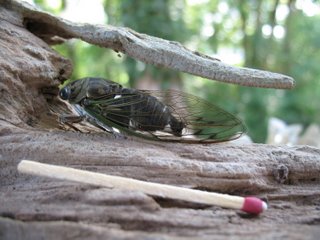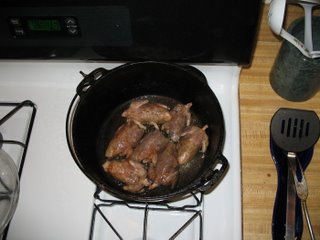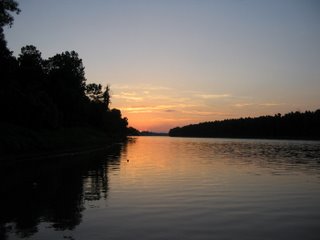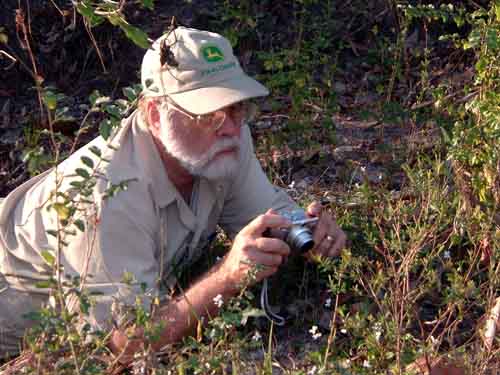Dog Feelings,and Doves

I sometimes wonder why hunting is something that people keep doing even though it really isn’t necessary for survival anymore, then I remember that there is more to it than providing food for the table. I grew up hunting with my father around New Iberia. When I was small, about nine years old, he would take me quail hunting a good bit. We would go out early in the mornings before the hunting season, and listen in certain places for the calls made by bobwhite quail. We would locate places to hunt that way, the larger coveys were not hard to find. He always had hunting dogs, setters and pointers. I would like to say they were beautiful dogs but I don’t think they were. They were a good breed line, but dogs that are kept only for hunting spend a lot of time alone and careful grooming isn’t usually a concern. These dogs got fed regularly and de-fleaed too, but they were not allowed to be pets in the modern sense. I remember that we used to dip the dogs in an insecticide solution that would turn the water milk-white, and it smelled strongly of creosote. The dogs didn’t like it, and you really didn’t want to get any of it in your eyes, but it sure kept the fleas away. I would imagine whatever that stuff was is banned by the government now. But the dogs were for hunting, and they did seem to enjoy it. It was always hoped that good dogs would go out into the field and find quail for you to shoot at – to shoot at being the operative phrase here. That’s what you fed them and kept them all year for. A really good dog would range away from you only a short distance, and not take off like a shot for the parish line, totally ignoring the fact that the purpose was to find birds in your vicinity. We never had good dogs like that. We had very enthusiastic dogs, and very athletic dogs, and highly strung dogs, but not good close-hunting dogs. Many times I remember my father getting so mad that he yelled that he would shoot the *%$#@ dogs instead of the quail. But because the situation was what it was, the dogs never got close enough to be in danger. Once in a while the dogs (usually two) would find some quail pretty quickly, before we lost sight of them. When that happened, it really was a pretty thing to see. One dog would stop and become rigid, like it was frozen solid, but trembling slightly. One front paw would be held up and back, the nose would aim at what was probably the object of the hunt and, if it was the pointer, the tail would kind of curl back and up. The other dog, if they were still in visual communication with each other, would come over and “honor the point” by taking a similar stance even if it didn’t see anything to point at. If this was a setter, its tail would be straight back and the long hair would flow down toward the ground like a small waterfall. No kidding, that is a very memorable thing to see. It stimulates something primal if you are close to it, the anticipation that something hunted has been found and is about to be killed. You walk up to the dogs to get close enough to shoot whatever they have located. You stand there a moment and look at your partner and raise your chin slightly, silently asking “Are you ready?” He nods and you turn back to the dogs and say “Go!” and they leap forward into the bushes to flush wha
 tever is there. Sometimes a single bird would rise into the air with a whir of wings and you might get a shot at it [it sounded like a cicada blasting away right by your ear]. But sometimes there would not be a single bird, but a covey of twenty or so. And you would have walked into the middle of them without knowing it, thinking the birds would be in front of the dogs. Suddenly they would rise with a tremendous clatter all around you, under your feet, behind you, on both sides, as well as in front of the dogs. Some people could still shoot and hit birds when that happened, but I never could. By the time I could act at all, the quail would be sailing over the next fence line. My father could still hit them, and that’s probably what prolonged the dog’s willingness to charge through the briars for the rest of the morning. Those were good times, and in those days there were quail to hunt all over around here. There were brushy fence rows, and thick edges around ditches and small patches of woods. This kind of cover is mostly gone now, a victim of clean farming practices, and the ease of herbicide use. Remember that there were no foxes around here then, or coyotes either, or fire ants. All of these have combined with the clean farming practices to eliminate almost all of the quail in this part of Louisiana. A pity, really, that watching the dogs do their thing is no longer possible here.
tever is there. Sometimes a single bird would rise into the air with a whir of wings and you might get a shot at it [it sounded like a cicada blasting away right by your ear]. But sometimes there would not be a single bird, but a covey of twenty or so. And you would have walked into the middle of them without knowing it, thinking the birds would be in front of the dogs. Suddenly they would rise with a tremendous clatter all around you, under your feet, behind you, on both sides, as well as in front of the dogs. Some people could still shoot and hit birds when that happened, but I never could. By the time I could act at all, the quail would be sailing over the next fence line. My father could still hit them, and that’s probably what prolonged the dog’s willingness to charge through the briars for the rest of the morning. Those were good times, and in those days there were quail to hunt all over around here. There were brushy fence rows, and thick edges around ditches and small patches of woods. This kind of cover is mostly gone now, a victim of clean farming practices, and the ease of herbicide use. Remember that there were no foxes around here then, or coyotes either, or fire ants. All of these have combined with the clean farming practices to eliminate almost all of the quail in this part of Louisiana. A pity, really, that watching the dogs do their thing is no longer possible here.Doves were another favorite fall harvest. We would go out about a week before the season opened and scout for fields the doves were using for feeding. You would see flocks of ten, or twenty, or a hundred birds moving lazily over a field looking for the best place to tank up on grain. That would get your blood flowing, just thinking that in a week you could be in that field, with those lazy doves. In those days you didn’t even have to ask permission to hunt in the fields around New Iberia; the landowners expected to have some guests around the beginning of dove season, and they didn’t mind. All kids were taught the
 rules of hunting, including how to act on someone else’s land: don’t litter or damage anything, and absolutely be sure to close any gate you open. Once you found some good fields, the week would pass and you would dream of opening day and wonder if this year you would be able to average one dove for every three shots. That was considered a respectable average then, I don’t know about now. I did manage to be able to do that, and a little better sometimes, but not anymore.
rules of hunting, including how to act on someone else’s land: don’t litter or damage anything, and absolutely be sure to close any gate you open. Once you found some good fields, the week would pass and you would dream of opening day and wonder if this year you would be able to average one dove for every three shots. That was considered a respectable average then, I don’t know about now. I did manage to be able to do that, and a little better sometimes, but not anymore.Dove season on opening day is only a half day in Louisiana, starting at noon. Now, this is the worst time of the day to dove hunt, because the birds feed early and late and rest in trees in the middle of the day. But that didn’t stop anyone from going out and sitting in the sun at midday. After all, this was dove season! People were also taught courtesy and manners in the field. You learned how far apart a hunter needed to be from his closest fellow hunter, and you didn’t trespass on his area. Mostly this amounted to a spacing that prevented shooting at the same birds. And you would see a bird and whistle at the people closest to where the bird would fly, alerting them to the bird if they hadn’t seen it. And they would do the same thing for you. There was that kind of courtesy, and it was common. We enjoyed the camaraderie of people we didn’t know, and when we killed enough birds to make a few meals we enjoyed eating the doves too. I put a picture here of some I cooked last week – smothered in a big black iron pot.
I recall my father telling me time and time again about having respect for the game you killed and brought home. Funny, he never said anything about that in so many words, but he expressed the lesson by doing things like insisting on meticulously cleaning every bird as though it was made of gold. N
 one of this tearing the breast out of a dove, no, he would pull every pinfeather out to the ends of the wings. He would not shoot over a field that was so overgrown that a downed dove would be lost. He wouldn’t shoot a bird that would fall over a canal that couldn’t be crossed to retrieve it. He hated to cripple a bird, and so he never shot at one that was out of range, even when other hunters were blasting away at impossibilities. As I say, these lessons were demonstrated, not dictated. Today I see a dove in our back yard and seem to automatically make the decision about whether it is in range for a clean kill or not – I mean I just seem to do this. We never had a dog that would retrieve doves, and I don’t know why. Hmph.
one of this tearing the breast out of a dove, no, he would pull every pinfeather out to the ends of the wings. He would not shoot over a field that was so overgrown that a downed dove would be lost. He wouldn’t shoot a bird that would fall over a canal that couldn’t be crossed to retrieve it. He hated to cripple a bird, and so he never shot at one that was out of range, even when other hunters were blasting away at impossibilities. As I say, these lessons were demonstrated, not dictated. Today I see a dove in our back yard and seem to automatically make the decision about whether it is in range for a clean kill or not – I mean I just seem to do this. We never had a dog that would retrieve doves, and I don’t know why. Hmph.Enough. Duck hunting and the associated adventures with wasps, and snakes, and being arrested when I was ten years old will come later. You really can drink five big swallows of white gasoline (by accident) and live to tell about it. Those were the days!
The river is at 1.9 on the Butte La Rose gauge, rising temporarily to 3.0 feet by Saturday. The Ohio and Mississippi are rising up to Cairo, but falling above that, so the extra water won’t stay with us for long.
Rise and Shine, Jim


1 Comments:
hi jim, my name is nathan carline and my family is from bayou chene, daddy's name was eveart, maybe you knew him . he did a lot of fishing and trapping but south of butte la rose along the bayou benoit levee where i was raised, you can e-mail me if you like so we can talk more, i'm in arkansas now but i sure want to come home to Louisiana before i die, i'm 62 and disabled but i sure do dream of all the good hunting and fishing i did in my younger days... cajunman59@windstream.net
Post a Comment
<< Home